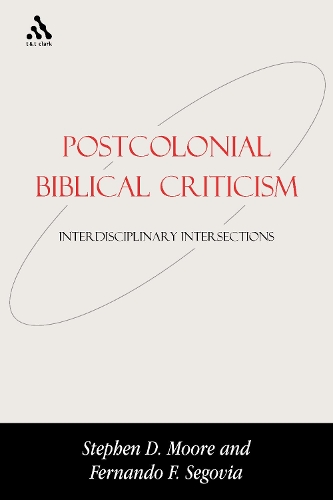
Postcolonial Biblical Criticism: Interdisciplinary Intersections
(Hardback)
Available Formats
Publishing Details
Postcolonial Biblical Criticism: Interdisciplinary Intersections
By (Author) Fernando F. Segovia
By (author) Professor Stephen D. Moore
Bloomsbury Publishing PLC
T.& T.Clark Ltd
6th April 2005
United Kingdom
Classifications
Tertiary Education
Non Fiction
Criticism and exegesis of sacred texts
220.67
Physical Properties
Hardback
216
Width 156mm, Height 234mm
470g
Description
One of the most influential developments in the humanities and social sciences during the past decade or so has been the consolidation and dissemination of postcolonial studies as an academic field, centred on the analysis of colonialism, imperialism and other related phenomena, and yielding a vast scholarly literature across a broad range of disciplines. During the past five years or so, postcolonial studies has begun to make significant inroads in biblical studies, giving rise to numerous conference papers, articles, essays and books, as well as to an SBL program unit. Postcolonial Biblical Criticism is most in-depth introduction to date to postcolonial biblical criticism. This volume explores postcolonial biblical criticism from a number of different but interrelated angles, so as to bring it into as sharp a focus as possible. Thus far, such a mapping of postcolonial biblical criticism as a whole has not been undertaken in explicit and detailed terms. Postcolonial Biblical Criticism seeks to do this primarily by carefully situating postcolonial biblical criticism in relation to other important political and theoretical currents in contemporary biblical studies: feminism; racial/ethnic studies; poststructuralism; and Marxism. Alternating between hermeneutical and exegetical reflection, the essays cumulatively isolate and evaluate the definitive features of postcolonial biblical criticism.
Reviews
Review in International Review of Biblical Studies, Vol 51: 2004/05
'A very welcom mapping, discussion and evalutation of what has become a significant approach to biblical interpretation. This is a useful collection. In particular, Segovia's critical analysis of a range of key texts from the 1990s is bound to become a standard point of reference. Liew's article is also of particular value in the range of critical theoretical issues that it raises.' ~ Peter Oakes, 28.5, 2006 -- Peter Oakes * Journal for the Study of the New Testament *
The assemblage of biblical scholars who have contributed to this book is its major strength. These are all well-published authors, most of whom have spent decades traversing the theoretical underpinnings of various critical approaches to the Bible - poststructuralism, postmodernism, Marxism, ideological criticism, feminism, and race/ethnicity.before turning to postcolonialism. .. for many biblical scholars, most of whom may be just beginning to reflect on concepts such as hybridity, mimicry, ambivalence, dislocation, diaspora, colonialism, and the like, this book should find a ready reading audience. The authors have a firm grasp of the issues at stake in interpreting the Bible along postcolonial lines. The book deserves to be read widely and would be especially useful in upper-division undergraduate classes in Bible and in seminary courses dealing with hermeneutical issues. -- Jeffrey L Staley * Review of Biblical Literature *
Author Bio
Fernando F. Segovia is Oberlin GraduateProfessor of New Testament and Early Christianity, at the Divinity School, Vanderbilt University, Nashville, Tennessee. His recent publications include Postcolonial Biblical Criticism (T&T Clark, 2005), coedited with Stephen Moore; Toward a New Heaven anda New Earth:Essays in Honor of Elisabeth Schussler Fiorenza (Orbis Books, 2003). Stephen D. Moore is Edmund S. Janes Professor of New Testament Studies at the Theological School, Drew University, USA.
